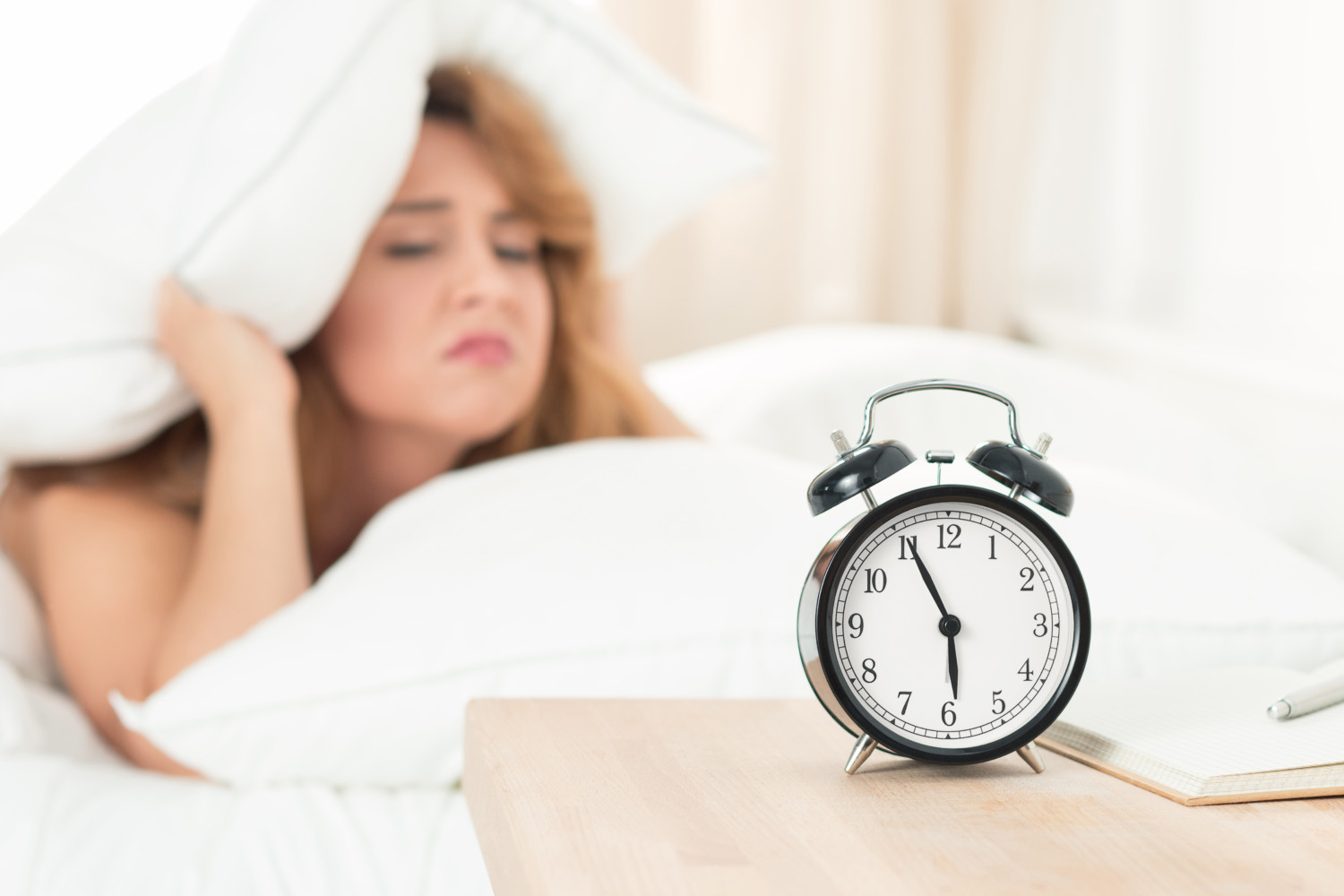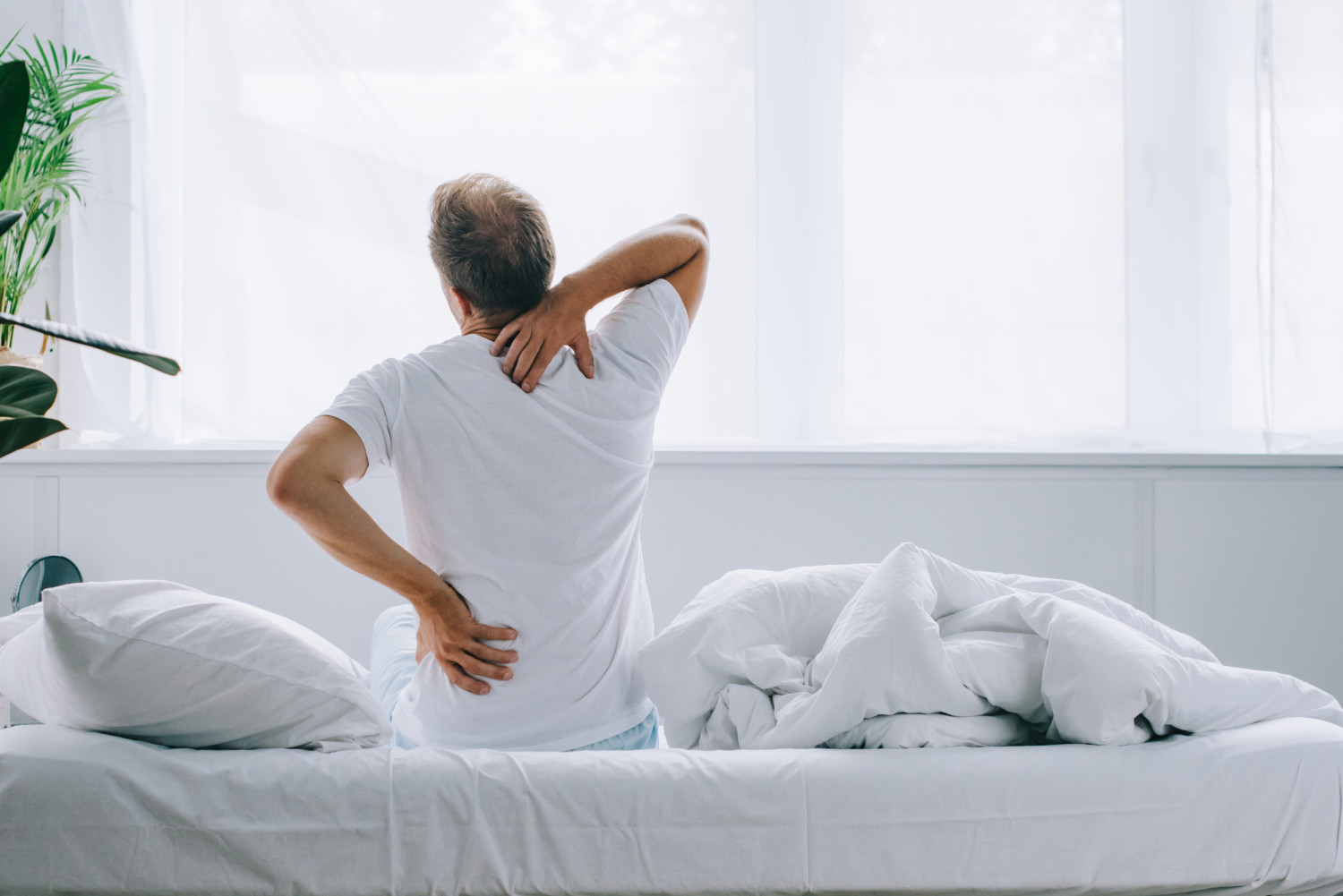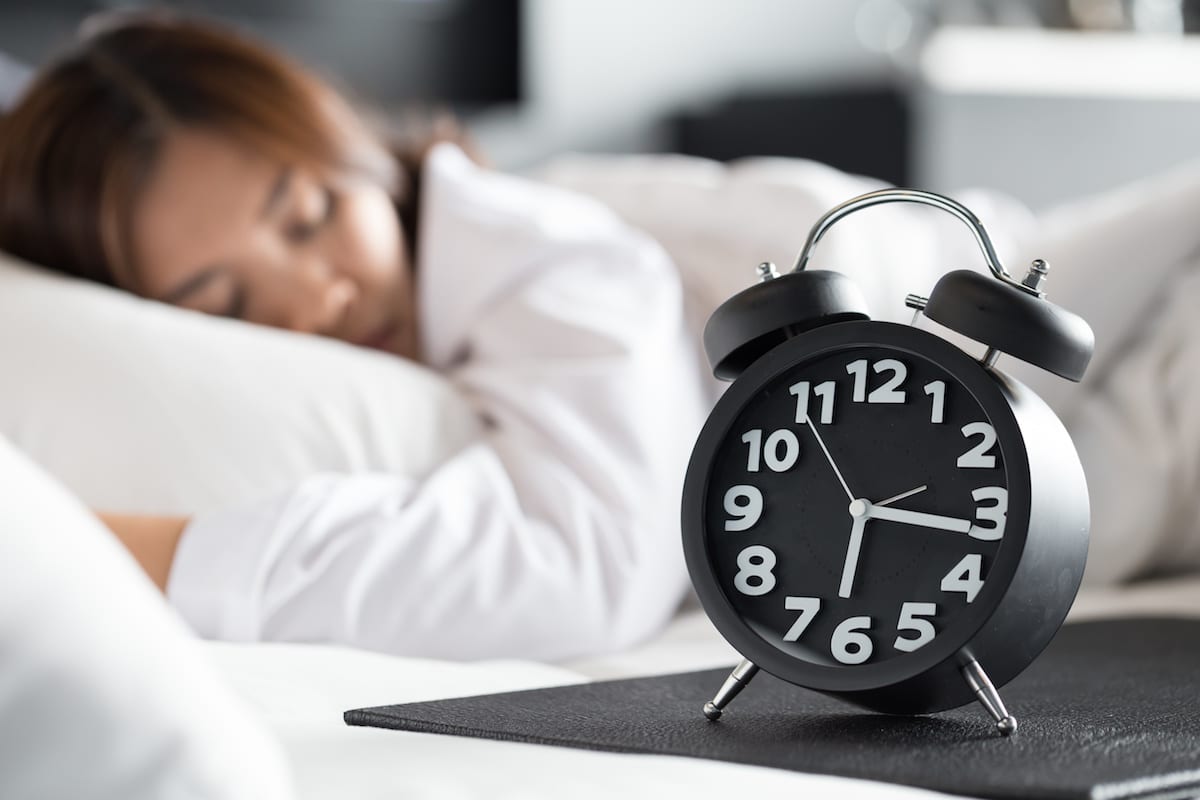Your eyes pop open. It’s still a little dark, and you’re hoping against all hope that you have a few more hours to sleep. But when you check the time, it’s almost time for your alarm to go off. You know it’s only a matter of minutes, but you feel like you’ve been cheated out of precious moments of rest. Why does this happen?
This phenomenon is quite common. Experts have many ideas about why it happens. But it’s not an issue to take lightly. According to the U.S. Centers for Disease Control and Prevention (CDC), one in three adults doesn’t get the recommended amount of regular sleep. The American Academy of Sleep Medicine and the Sleep Research Society recommend seven hours a night for optimal health. Less than seven hours is associated with multiple adverse health outcomes, including obesity, diabetes, high blood pressure, heart disease, stroke, and frequent mental distress.
Fortunately, you can ensure you’re getting adequate sleep, even if you wake up just before your alarm rings.

Internal Clocks
One possible explanation for why this happens is the body’s internal clock. Your circadian rhythm helps to regulate your sleep cycles. Studies have found that many people have the cognitive ability to keep track of time when asleep. If you maintain an established sleep-wake cycle, your body may learn when to wake up and give you an early warning signal to help you prepare for the day ahead.
This ability could be genetic. In 2011, researchers at the Salk Institute for Biological Studies identified a gene responsible for starting the biological clock from its restful state every morning.
“The body is essentially a collection of clocks,” Satchidananda Panda, an associate professor in Salk’s Regulatory Biology Laboratory, who led the research, told Salk News. “We roughly knew what mechanism told the clock to wind down at night, but we didn’t know what activated us again in the morning. Now that we’ve found it, we can explore more deeply how our biological clocks malfunction as we get older and develop chronic illness.”

Anxiety
Another factor that might cause us to wake up just before our alarm is anxiety or anticipation. Worrying about something upcoming — such as an important meeting at work or school — can create mental tension, which may prompt the body to wake up earlier than usual.
Some people experience “alarm anxiety,” which can be a fear of not hearing the alarm or anxiety about being jolted awake by the noise. This type of anxiety can be exacerbated by the knowledge that if you don’t get enough sleep by the time the alarm sounds, your coming day may be negatively impacted.
Stress can also affect our sleep cycles, causing us to wake up prematurely. There’s a hormone stored in the pituitary gland called ACTH, which starts to increase in advance of your usual waking time. This signals adrenal glands to release cortisol, a “stress hormone” that helps wake you up.
“High levels of stress impair sleep by prolonging how long it takes to fall asleep and fragmenting sleep. Sleep loss triggers our body’s stress response system, leading to an elevation in stress hormones, namely cortisol, which further disrupts sleep,” said Dr. Annise Wilson, assistant professor of neurology and pulmonary, critical care and sleep medicine at Baylor College of Medicine.
When we are under pressure or worrying about something, achieving a deep, restful sleep can be challenging. So instead, we might wake up frequently during the night and then again just before the alarm goes off.
Physical Issues
Discomfort from issues such as back and shoulder pain can prevent you from sleeping soundly. You can also wake up too early if you’re feeling the effects of cramps, heartburn, and aches and pains related to age. Physical problems can disrupt your sleep throughout your cycle even if you don’t fully wake up at any point.
Other issues, like sinus congestion, restless leg syndrome and obstructive sleep apnea, can also cause you to wake up prematurely.
“(Sleep apnea) can wake you up multiple times through the night,” Dr. Vaishnavi Kundel, assistant professor of pulmonary, critical care, and sleep medicine at the Icahn School of Medicine at Mount Sinai, told Popsugar, noting that you may not even be aware that you’re waking up. “It leaves you feeling exhausted and tired during the day.”

External Disrupters
Factors such as the amount of light and shade in your room and the noise outside your window can cause you to awaken early. Drinking alcohol before bed may also cause you to get up before your alarm rings.
“When you drink, your body stops producing glutamine but doesn’t stop using it. When the alcohol is cleared, your body realizes it’s lacking glutamine in a major way, and this causes your body to quickly produce and distribute glutamine through the body to make up for the imbalance,” pharmacist John Mansour told Shape. This glutamine rush can wake you up.
Technology in the bedroom can impair sleep and wake you, as well. For example, the blue light emitted by many electronics can disrupt your body’s natural melatonin production, disrupting your circadian rhythm. And if you sleep near your phone, tablet or another device, any blinking lights, audio notifications or other sounds could wake you.
Tips For Improved Sleep
“As a nation, we are not getting enough sleep,” Dr. Wayne Giles, director of CDC’s Division of Population Health, said in a statement. “Lifestyle changes such as going to bed at the same time each night; rising at the same time each morning; and turning off or removing televisions, computers, mobile devices from the bedroom, can help people get the healthy sleep they need.”
Going to bed at the same time each night and allowing plenty of time for restful sleep can help ensure your body is functioning optimally. In addition, taking steps to alleviate anxiety, such as journaling about your worries before bed, can keep stress from interrupting your sleep.
“So now you can say, ‘OK, I’ve made a list of the things that I need to do tomorrow, so I don’t have to think about them now,'” Kundel said.
Remove devices from your bedroom and talk to your healthcare provider if you are experiencing pain or physical symptoms.

By following good sleep habits and giving yourself enough time to rest, you may find that waking up just before your alarm goes off becomes a much less frequent occurrence.
This story originally appeared on Simplemost. Check out Simplemost for additional stories.


